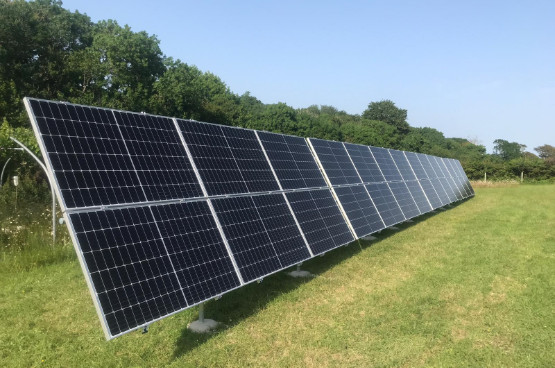Let’s go over some of the terminology that is commonly used when we talk about renewable installations. The only thing you need to know is this simple equation below:
Power (Watts) = Energy (Joules) / Time (Seconds)
- Power (Watts, W): Power is a measure of how quickly energy is transferred. The unit we use to measure power is watts. Every electrical appliance in your house will have a power rating. For example, a typical domestic EV charger uses about 7000W of power and a kettle uses about 2000-3000W
- Kilowatts (kW): One kilowatt is simply 1000 watts (like how one kilometre is 1000 metres). We tend to deal with thousands and sometimes millions of watts at a time, so using kW makes life a bit easier. Going back to the previous example, we would say that a typical EV charger uses about 7kW of power
- Energy (Joules): Energy is generated (from solar PV, wind, etc.), transferred to our houses via the national grid then finally transferred into our electrical appliances where it is consumed. The equation above can also be written as: 1 joule of energy will be used when a 1-watt appliance is turned on for 1 second
Therefore, another word for Joule is watt-second. We like to deal in kilowatts (kW) rather than watts, and hours (h) rather than seconds. The result is that energy is most often expressed as kilowatt-hours (kWh), rather than joules.
Here are some kWh examples to give you some context.
- The average UK household uses roughly 4000 kWh per year (that’s about 11kWh per day)
- Our specialist Ollie’s 2019 Tesla Model 3 Standard Range EV has a 53.6kWh battery (that’s a 220-mile range according to Tesla)
- An iPhone battery is about 0.01kWh
Finally, here is an example of how it applies to charging an EV
Let’s say Ollie wants to charge his Model 3 from 0 to 100% as quickly as possible at home. In theory, this would take just over 7 hours if he charged at a constant rate of 7kW. However, to protect the battery and prolong its life, Tesla has ensured that charging speeds are slowed down towards the end of the charge. This means a full charge would take somewhere between 7-11 hours.

 Solar PV Contractor of the Year 2024
Solar PV Contractor of the Year 2024
